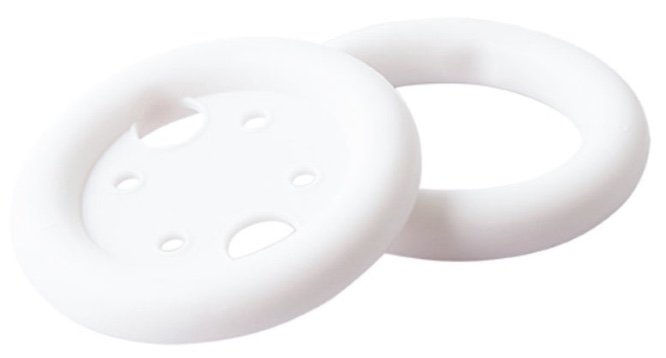What are Pessaries?
A pessary, in pelvic health, is a medical device inserted into the vagina for structural support or pharmaceutical purposes. They can be inserted by a trained healthcare provider or by oneself after receiving instruction on their use.
In Pelvic Health Physiotherapy, a pessary is a supportive device prescribed to manage pelvic organ prolapse (POP). To learn more about POP, please follow this link.
There are two main types of pessaries:
Supportive Pessaries
Suitable for mild-to-moderate prolapses and stress urinary incontinence.
Provide support to anterior and apical POP.
May slip out due to weak pelvic floor muscles or if not well-fitted.
Often able to remain in place during vaginal intercourse.
Easier maintenance – can be left in for up to six months if no adverse effects.
Space-Occupying Pessaries
Suitable for moderate-to-severe prolapses.
Provide support to all three compartments of POP.
Better retention due to their suctioning property.
Must be removed before vaginal intercourse.
Require daily removal for hygiene care and to maintain the integrity of vaginal tissues.
Pessaries on the market are commonly made from two different materials:
Silicone
Much softer (imagine menstrual cups/discs).
Much easier to insert and remove.
More comfortable.
PVC
Much firmer.
Commonly still found in hospitals and/or gynecology practices.
At Prohealth, we source our medical-grade silicone, single-patient-use pessaries from a reliable supplier in Australia.
What Should I Expect When Seeing a Physiotherapist for POP?
The initial consultation will consist of a comprehensive assessment that includes:
Pelvic floor-targeted questions to explore how prolapse and other pelvic conditions affect your life.
An objective assessment (which may require an internal examination) to determine the stage of prolapse, pelvic floor muscle function, and, if pessaries are opted for, suitability and sizing for a pessary.
A clear explanation and education about your condition and available management options.
Pelvic organ prolapse can be well-managed with pelvic floor exercises and correctly fitted pessaries. Pelvic health physiotherapy is an excellent option for the conservative management of pelvic conditions, including incontinence, urgency, constipation, sexual pain, and POP, prior to considering surgical intervention.



